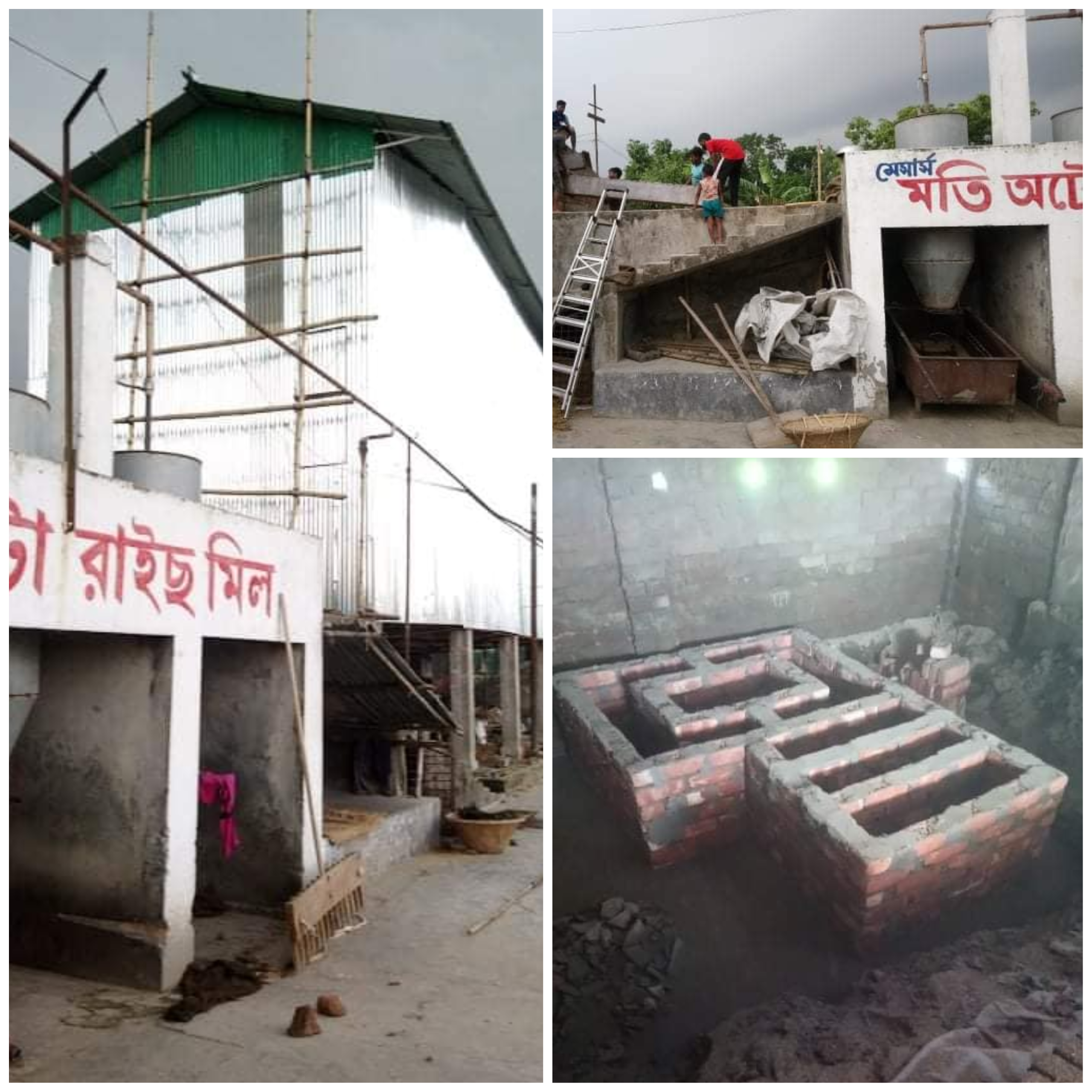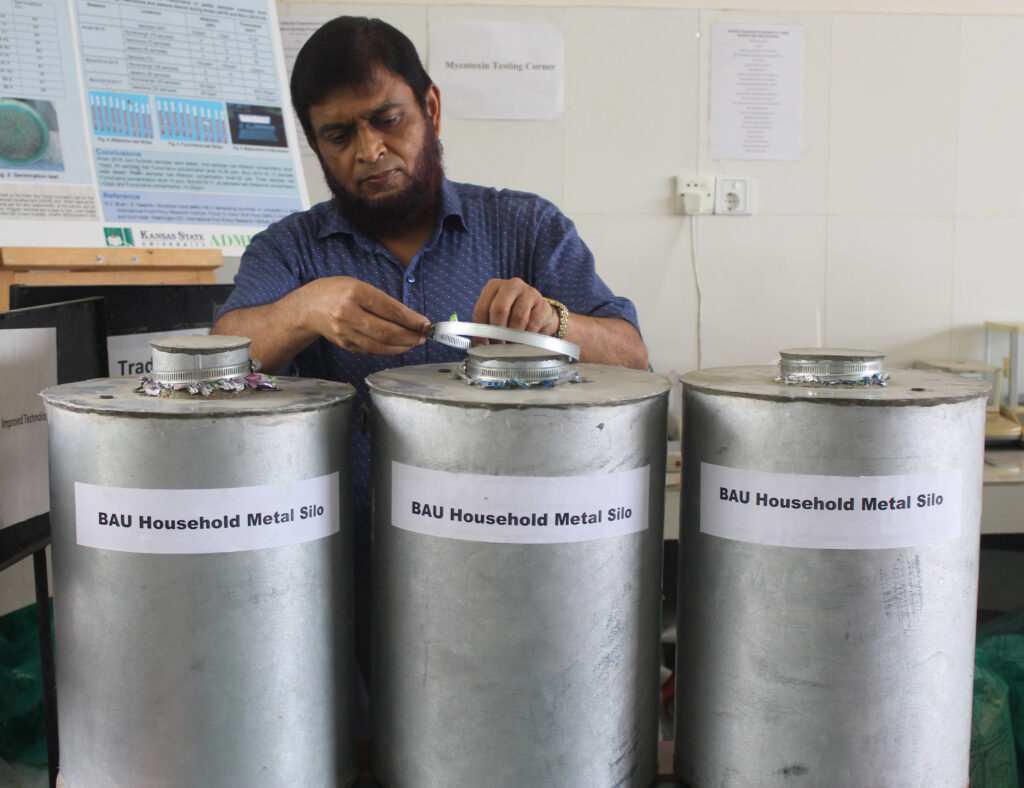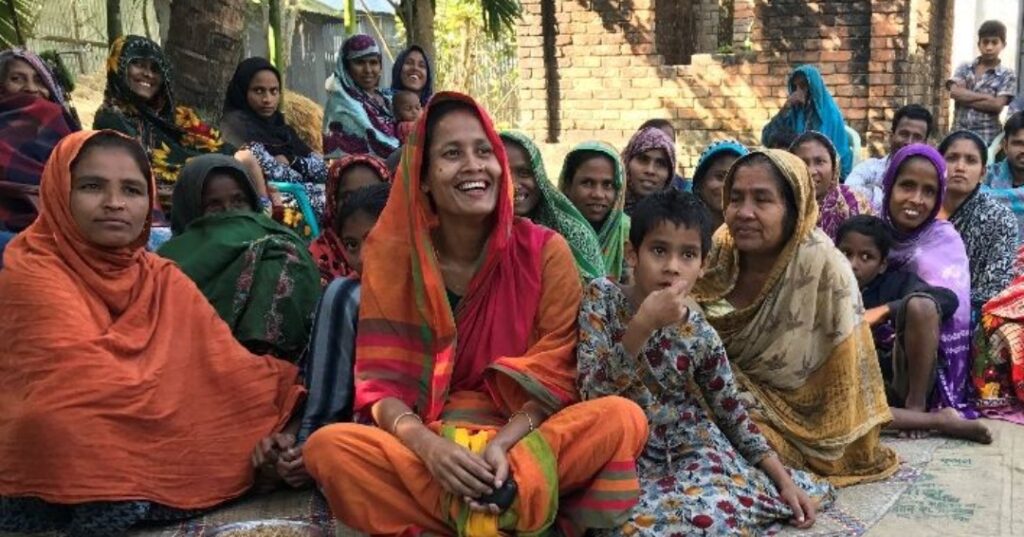News from Bangladesh: Dryer construction and research awards
Construction begins on BAU-designed 12-ton grain dryer

In June, the installation process began for a 12-ton capacity paddy dryer at the Moti Auto Rice Mill in Bangladesh. Researchers at Bangladesh Agricultural University collaborated with the private mill to design and manufacture the recirculating batch grain dryer with locally available parts and components. The 12-ton capacity matches the capacity of typical husking mills to maintain capacity regardless of weather. Through a cost-share arrangement with the mill, the dryer will serve as a research and demonstration site, which BAU researchers hope will serve as a springboard to scale up the design for use in other locations.
Bangladesh has about 14,500 small and medium scale private rice husking mills, which together account for 45% of total paddy production in the country. These millers typically dry grain in open air and face challenges when drying during the rainy seasons. Improving their drying capacity will allow the millers to accept wet paddy from farmers, improving income prospects for both the farmers and the millers.
One of the key innovations of the BAU-designed dryer is the ability to dry either paddy or parboiled rice. Most dryers can only handle one type. Hopefully the combination of scale and versatility will enable existing mills to operate year-round and provide a more reliable market for smallholder farmers.
The project is part of the Innovation Lab for the Reduction of Post-Harvest Loss (PHLIL) Bangladesh component. ADMI is a co-lead on the project with Kansas State University. Click here to read more about PHLIL activities in Bangladesh.
Awal receives BAURES outstanding presentation award

Dr. Md. Abdul Awal received the outstanding presentation award at the recent Bangladesh Agricultural University Research System (BAURES) annual research workshop.
The project objective was to reduce paddy storage loss through improved storage technology developed with locally available materials used to modify established storage technologies. Awal and his team tested modified metal silos, plastic containers, modified plastic drums, and jute bags. The experiment measured a number of parameters, including moisture content percentage, oxygen and carbon dioxide levels, weight loss, insect infestation, and germination of the stored seeds. Awal concluded that the modified metal bins exhibited characteristics of hermetic storage, which recorded the lowest levels of loss (.92%) and highest germination rates (84%).
Awal is a member of the PHLIL and Appropriate Scale Mechanization Consortium (ASMC) Bangladesh research teams. The modified storage experiment was funded by BAURES and distribution of the modified bins to smallholder farmers will be assisted by ADMI project funding from ADM Cares.
Begum receives Khan Memorial Agricultural Award from BAU

Bangladesh Agricultural University recently announced that Khodeza Begum is the recipient of the 2021 Professor Dr. Ashraf Ali Khan Memorial Agricultural Award. Begum (pictured second from left) is a well-regarded female entrepreneur from Phulpur, Mymensingh.
She was selected for her contributions to agricultural mechanization, particularly her encouragement of neighbors and farmers to adopt improved postharvest drying and storage practices. She has largely been supported and trained by the PHLIL-Bangladesh team.
The award was presented during the Bangladesh Agricultural University Research System (BAURES) annual research workshop in May.


Add Comment